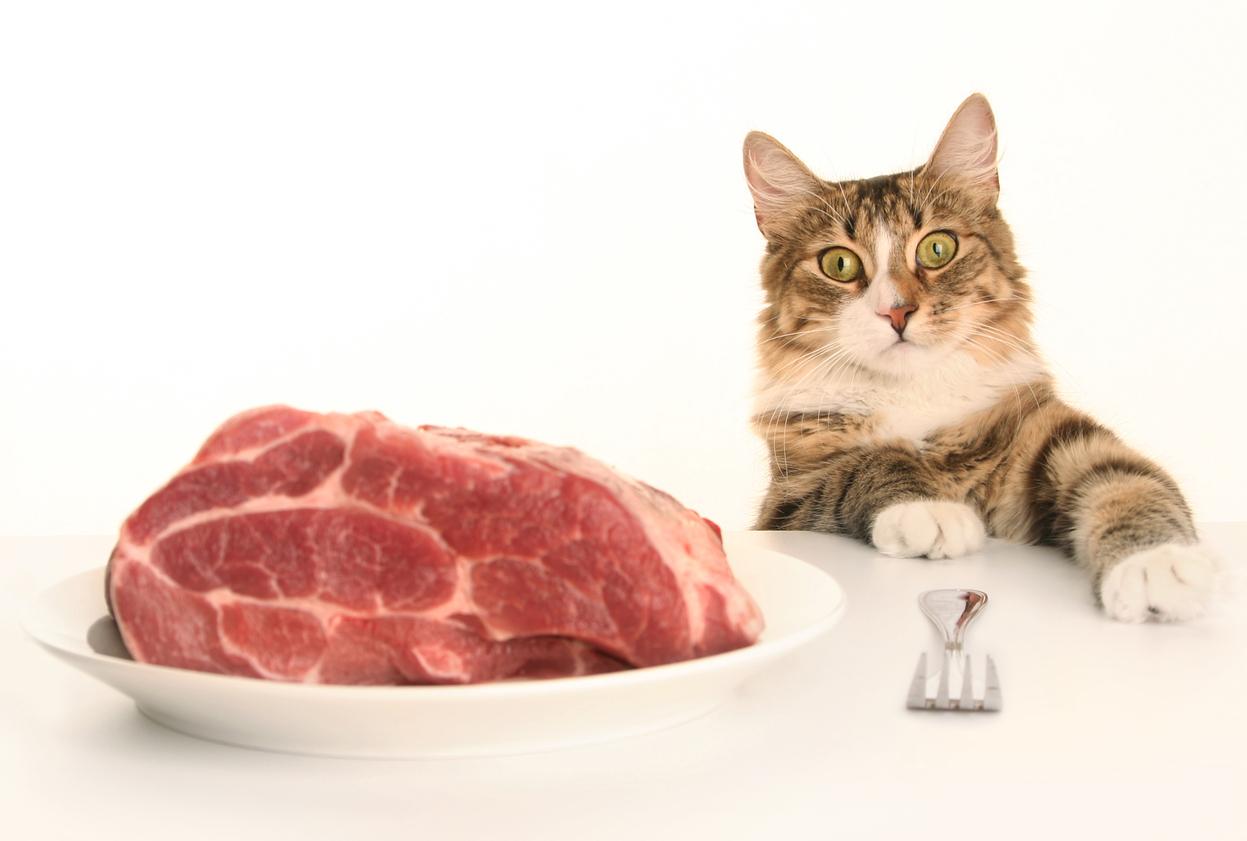Raw meat pet foods pose risk to animal and human health, finds study

Experts are warning pet owners to be aware of the risks associated with raw meat-based diets (RMBDs).
The advice comes after researchers say these diets could be contaminated with harmful bacteria and parasites, and as such may pose a risk to both animal and human health.
A trend which involves feeding cats or dogs raw meat and bones, RMBDs have become increasingly common in recent years as pet owners hail them as more natural, and void of additives or contamination.
However, researchers have opposed popular opinion by saying there is no evidence of such health benefits and that this kind of diet could in fact put pets and their owners at risk of serious diseases such as E.coli.
The study by Utrecht University, published in the journal Veterinary Record, analysed 35 commercial frozen foods from eight different brands, widely available in The Netherlands.
It found that E. coli was present in eight products (23 per cent), Listeria species were found in 15 products (43 per cent) and Salmonella species in seven products (20 per cent).
Both E.coli and Salmonella infections in humans have been linked with serious illnesses.
In addition, four products (11 per cent) contained the parasite Sarcocystis cruzi and another four contained Sarcocystis tenella. Meanwhile, in two products (six per cent), Toxoplasma gondii was found.
As such, researchers said that the bacteria and parasitic pathogens found in the foods may be a possible source of infection in pets and, if transmitted, pose a risk for human beings too.
It is reported that humans could encounter bacteria from raw foods in several ways, including direct contact with the food or with an infected pet; through contact with contaminated household surfaces; or by eating cross-contaminated human food.
“Cats and dogs that eat raw meat diets are also more likely to become infected with antibiotic-resistant bacteria than animals on conventional diets, which could pose a serious risk to both animal health and public health,” said Paul Overgaauw at Utrecht University.
“It is important to encourage awareness of the possible risks associated with feeding RMBDs to companion animals, and pet owners should be educated about personal hygiene and proper handling of RMBDs.”
The team concluded that warnings and handling instructions should be included on product labels and/or packages.
Join our commenting forum
Join thought-provoking conversations, follow other Independent readers and see their replies
0Comments